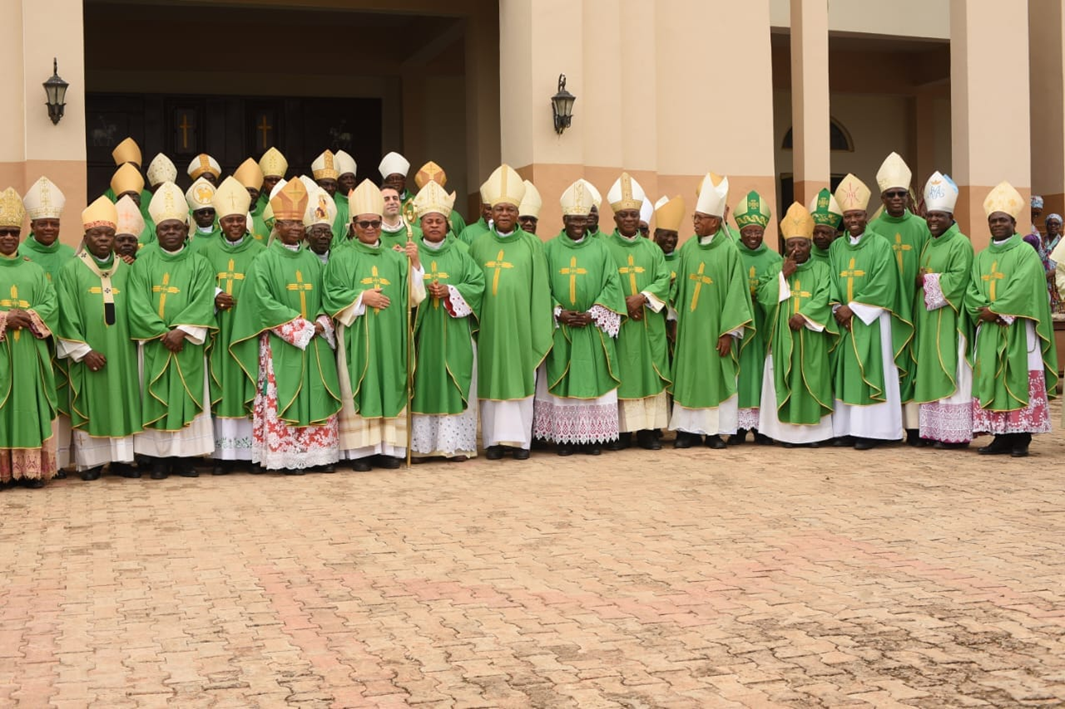By Paschal Norbert
AUCHI, AUGUST 30, 2024 (CISA) – At the conclusion of their Second Plenary Meeting, the Catholic Bishops’ Conference of Nigeria (CBCN) issued a pressing communiqué addressing two pivotal issues within the Church: the need for greater respect for liturgical practices and the proliferation of unauthorized private ministries.
The communiqué, released at the Nezer Towers and Suites in the Catholic Diocese of Auchi, reflects deep concerns over the state of worship and ecclesiastical organization in Nigeria.
Promoting Respect for the Liturgy
In their communiqué, the bishops reiterated the critical importance of maintaining reverence in liturgical practices, emphasizing that the Sacred Liturgy is central to the Church’s mission.
“The Sacred Liturgy is ‘an exercise of the priestly office of Jesus Christ,’ ‘the summit toward which the activity of the Church is directed,’ and ‘the font from which all her power flows,’” they stated, citing key principles from the Church’s teachings. This reverence, they argued, is non-negotiable, as the liturgy must be “received and not invented,” and it must be safeguarded with “utmost reverence and fidelity.”
Despite these directives, the bishops expressed concern over increasing deviations from liturgical norms: “We observe with deep concern an alarming increase in aberrations during worship across the country.”
Specific issues highlighted include unduly lengthy Eucharistic celebrations, excessive monetary collections, and a general lack of silence and decorum. Additionally, there have been disturbing reports of alterations to the words and elements of the Sacraments, potentially invalidating them.
“There is also the unfortunate incident of altering the words and elements of the Sacraments at will at the risk of invalidating the Sacraments,” they noted.
The bishops also criticized the misuse of the Blessed Sacrament and inappropriate attire during liturgical services.
“We also observe with sadness the wrong use of the exposed Blessed Sacrament as if it were an instrument for magical and theatrical display during adorations,” they lamented.
These practices, they argue, not only affront the sanctity of the liturgy but also scandalize many faithful. To address these concerns, the bishops pledged to “intensify our vigilance to ensure that the liturgy is celebrated according to the approved norms of the Church.” They called on priests to embrace their liturgical responsibilities with seriousness and avoid personal interpretations that deviate from established guidelines.
Proliferation of Private “Ministries”
The Catholic bishops also addressed the troubling trend of private “ministries” proliferating within the local Church, which they believe are causing significant issues.
“The proliferation of private ‘ministries’ by some priests and lay faithful is a matter of great concern,” they declared. These ministries often engage in unorthodox practices that not only scandalize the faithful but also damage Church unity. The bishops noted that many priests involved in these ministries are becoming “too distracted from their primary duty as pastors of souls.”
In their communiqué, the bishops reaffirmed the Church’s teaching that no other ministry but that of Jesus Christ, entrusted to and guarded by the Church, is valid.
“We reaffirm the teaching of the Church, that there is no other ministry than that of Jesus Christ entrusted to and guarded by the Holy Mother Church,” they emphasized.
They reminded all members of the Church that charisms are meant to build up the body of Christ, not for “selfish and self-serving glorification.” They stressed that all charisms should be exercised within the Church’s guidelines and under competent ecclesiastical authority.
The bishops also warned the faithful to be cautious of ministries that operate without proper Church authorization: “We call on all who want to use their charisms for the Church and not against her, to submit themselves to the competent authority.” No ministry, association, or institution can bear the name Catholic without express permission from the Church’s authorities, they reminded.
“In fact, no ministry, association or institution can bear the name Catholic without the express permission of the competent authority,” they stated.
